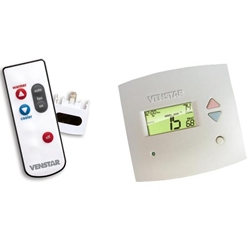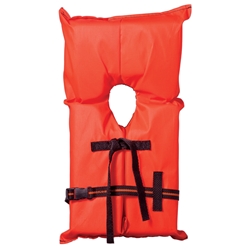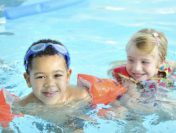Summertime is fun and relaxing for most people, but the heat, humidity and emphasis on outdoor activities can be hazardous for seniors. While there are many benefits to getting outside and enjoying the fresh air, its important to take precautions to help older adults avoid heat and exercise-related injuries.
Here are some great summer safety tips for seniors and their caregivers.
Beat the Heat
Older adults are especially vulnerable to the summer’s heat and humidity due to physical changes that come with aging, chronic health conditions and the side effects of many medications.
Stay Hydrated
Dehydration is one of the leading causes of heat-related health issues. To stay well hydrated, older adults should drink 6-8 glasses of non-alcoholic and decaffeinated fluids a day. Warning signs of dehydration include weakness, headache, muscle cramps, dizziness, confusion and passing out. Seniors should call 911 right away if these symptoms occur. A personal alert system with a wearable pendant gives seniors who live alone an easy way to call for help in case of a medical emergency.
Cool Off
Seniors should spend as much time as possible in air-conditioned spaces, especially on hot and humid days when the temperature climbs above 90°F. Keep shades, blinds and curtains closed during the day, use fans and only open windows when things cool down at night.
During a heat wave, the A/C should be set between 70°F to 74°F. A programmable thermostat with a handheld wireless remote control makes it easy for seniors to adjust the temperature without having to get up. To assist seniors living alone, install a thermostat that can be adjusted remotely by family members or caregivers via telephone or the Internet.
Exercise Smartly
During the height of the summer, seniors should avoid staying outdoors for long periods and make sure to drink even more water than usual when exercising. Consider doing any outdoor exercise earlier in the morning or later in the evening when the sun is not at its peak. On really hot days, seniors should avoid exercising and other strenuous outdoor activities.
Practice Water Safety
Swimming is one of the best ways for seniors to stay healthy, fit and cool during the summer months. Unfortunately, about 10 people die every day from unintentional drowning. Although most victims are small children and non-swimmers, seniors with conditions that affect their vision, judgment, balance or coordination such as epilepsy, Alzheimer’s disease, diabetes, seizure disorders or a heart condition are particularly vulnerable and at risk of drowning.
To provide a safe environment for seniors and swimmers of all ages, its important to be aware of and practice the CDCs water safety guidelines. There is also a range of water safety equipment that can help keep seniors safe around swimming pools, lakes and beaches. Consider using one or all of the following:
Gate Alarm
A pool gate alarm is an excellent way to prevent seniors with dementia or Alzheimer’s from wandering dangerously close to the pool area. A gate alarm sounds a siren when the door or gate to the pool area is opened. For double protection, some pool gate alarms transmit to a remote receiver and a home security system, ensuring that the alarm will be heard in the house or remotely.
The MagnaLatch ALERT Pool Safety Gate Latch with Alarm is a magnetic latch that is easy to install to vinyl, metal or wood gate posts. The alarm has dual electric warnings when unlatched: bright LED lights and an audible alarm. The latch has a rekeyable lock for extra security and convenience. The safety gate comes in two models, a Top Pull for child safety and a Vertical Pull for pet safety.
Pool Alarm
Pool Surveillance Cameras
 To keep an eye on a seniors pool area from afar, family members can install an outdoor surveillance camera like the Pool WatchDog Swimming Pool Safety Camera that allows them to view streaming live video of activity around the pool on a smartphone, computer or tablet from anywhere. When someone enters the pool area, Pool WatchDog also sends email or text message alerts. We recommend using a pool surveillance camera in combination with a pool alarm not instead of a pool alarm.
To keep an eye on a seniors pool area from afar, family members can install an outdoor surveillance camera like the Pool WatchDog Swimming Pool Safety Camera that allows them to view streaming live video of activity around the pool on a smartphone, computer or tablet from anywhere. When someone enters the pool area, Pool WatchDog also sends email or text message alerts. We recommend using a pool surveillance camera in combination with a pool alarm not instead of a pool alarm.
Life Jackets are a Must
Wearing a life jacket is an essential safety precaution for at-risk seniors who cannot swim or do not have the strength to tread water if submerged. Type II life jacket that turns an unconscious person face-up in the water is the best choice for frail seniors. Make sure the fit of the life jacket is correct for the persons size and weight.
More Hot Weather Safety Tips
For more ways to stay safe this summer, we offer a variety of wellness options and independent living aids designed to help seniors maximize their health and provide peace of mind for their families. You may also want to print this list of 12 Summer Safety Tips for the Elderly published by Care.com and post it on your seniors refrigerator to remind them to be cautious when temperatures climb.





